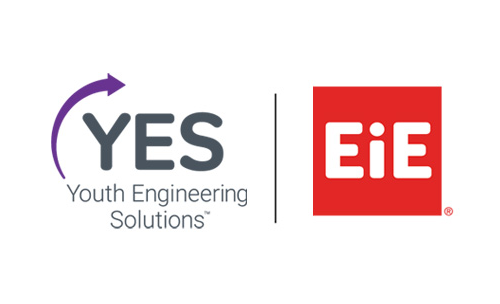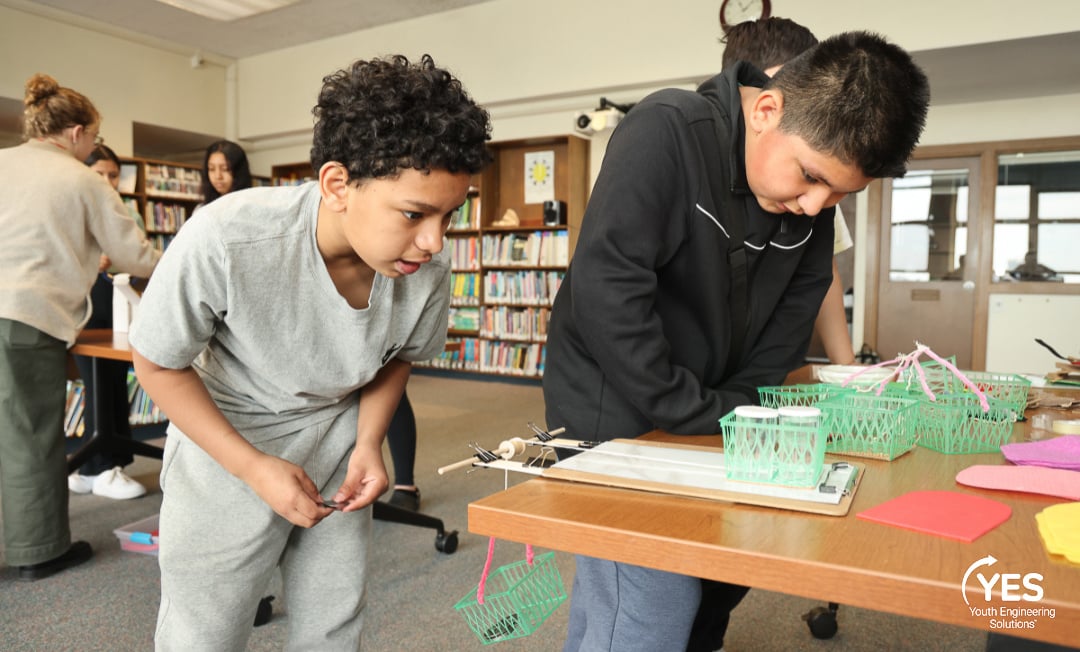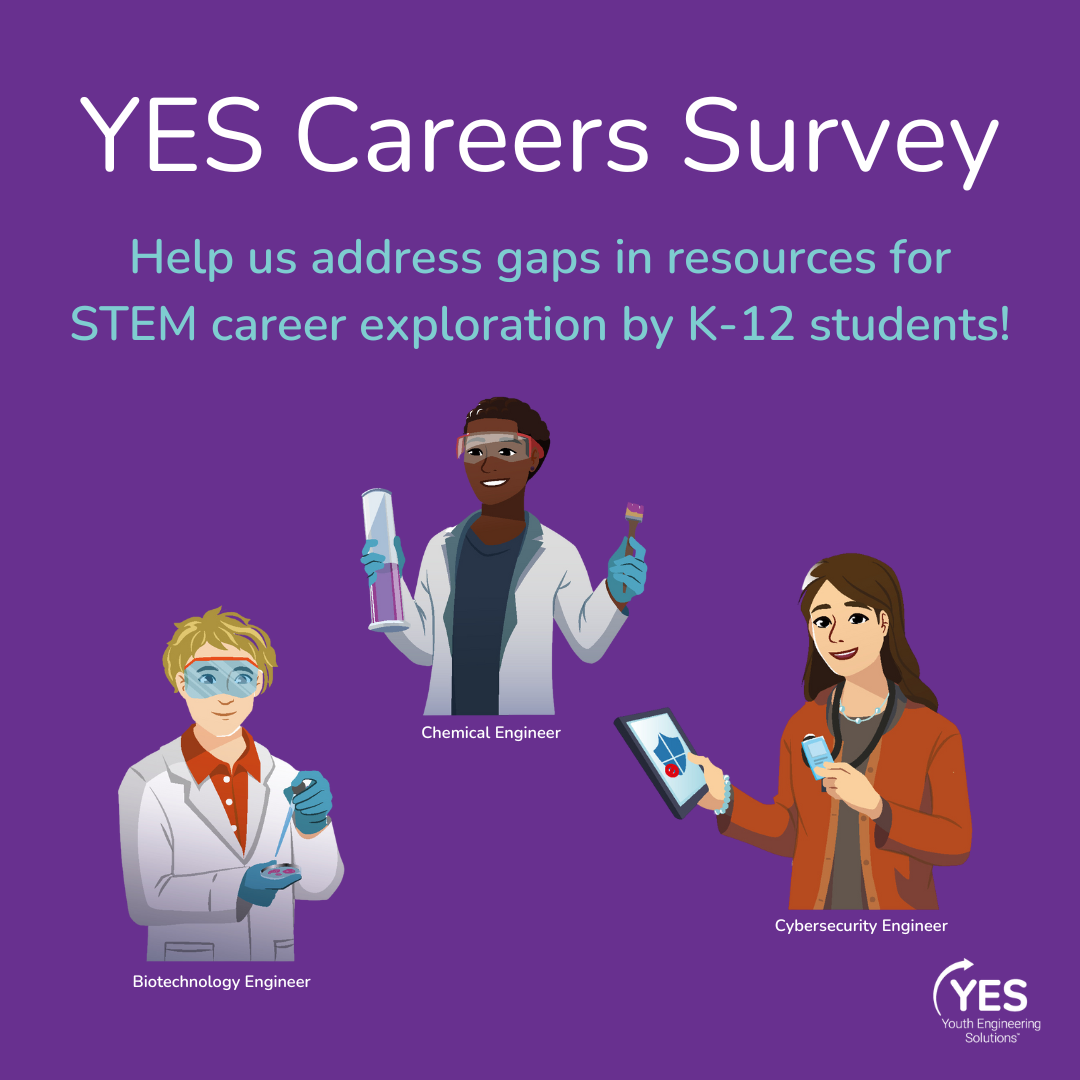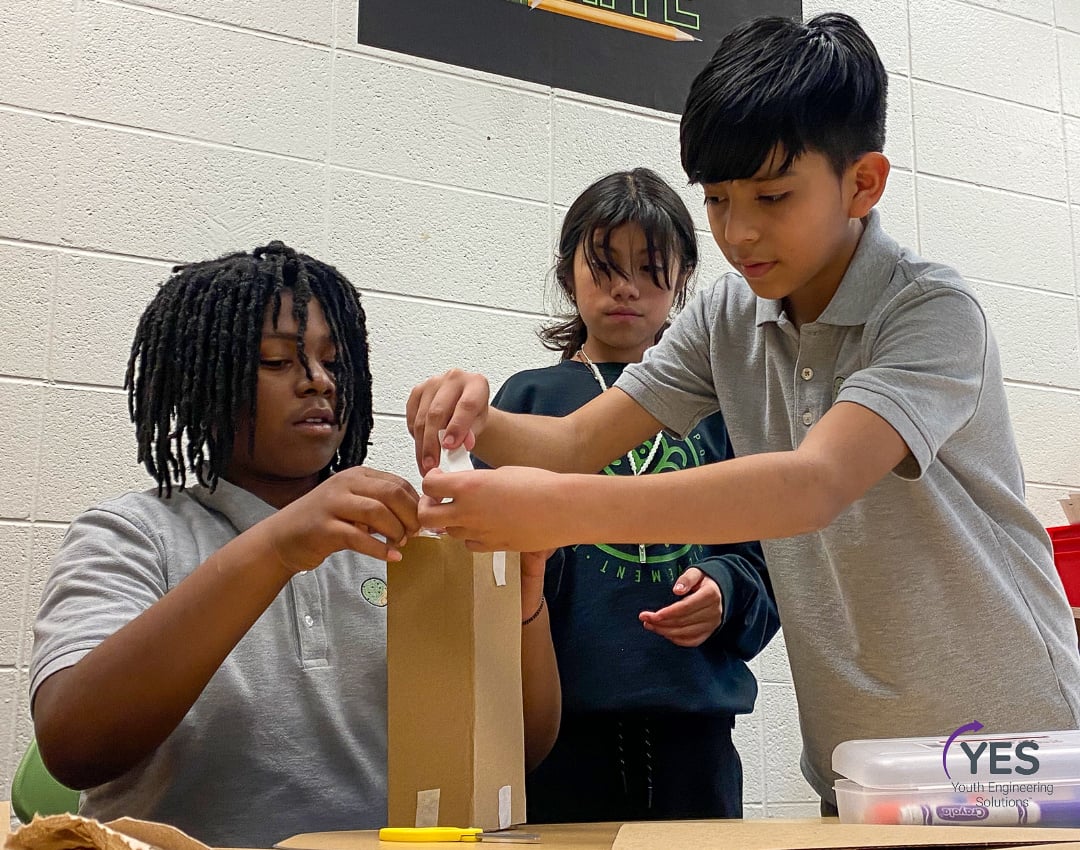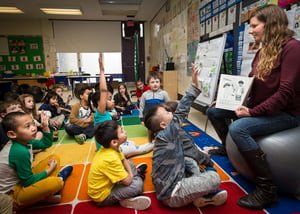 We develop curricula that we hope will inspire educators to take engineering learning to the next level. Every year, we are blown away by the stories we hear about the creative and unexpected ways that teachers implement and build upon our curricula. Today, we’re celebrating a few superstar educators who exemplify the values of EiE. Their stories feature powerful social justice connections, history-making STREAM certifications, and a three-legged dog named Champ!
We develop curricula that we hope will inspire educators to take engineering learning to the next level. Every year, we are blown away by the stories we hear about the creative and unexpected ways that teachers implement and build upon our curricula. Today, we’re celebrating a few superstar educators who exemplify the values of EiE. Their stories feature powerful social justice connections, history-making STREAM certifications, and a three-legged dog named Champ!
Karissa Weiler, Champion of Engineering for ALL
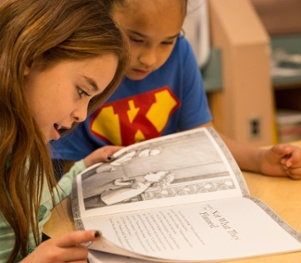 We met Karissa Weiler; third-grade teacher at Keeling Elementary in Tuscon, Arizona; when we filmed her class for our classroom video library. Karissa has a high English Learner population, and she has found that her students thrive with hands-on engineering. We shared some of her expert teaching tips related to vocabulary comprehension, context setting, and more. Karissa’s positive outlook is infectious, and her teaching strategies are phenomenal. You’ll love the video snippet featuring her lively class!
We met Karissa Weiler; third-grade teacher at Keeling Elementary in Tuscon, Arizona; when we filmed her class for our classroom video library. Karissa has a high English Learner population, and she has found that her students thrive with hands-on engineering. We shared some of her expert teaching tips related to vocabulary comprehension, context setting, and more. Karissa’s positive outlook is infectious, and her teaching strategies are phenomenal. You’ll love the video snippet featuring her lively class!
Sue Pietrusza, STREAM Pioneer
Sue Pietrusza is the assistant principal and technology integration specialist at Christ the King Catholic School in Jacksonville, Florida. In 2014, she and her fellow administrators set out to achieve an exciting goal: to get Christ the King School a STREAM (science , technology, religion, engineering, arts, and mathematics) certification from the Florida Catholic Conference. Now, they’re the first STREAM-certified school in the state of Florida! Read Sue’s story on the blog to find out how EiE helped CTK achieve their certification, and to hear about a class activity straight out of a fairytale featuring EiE, a class full of kindergartners, and Monarch butterflies!
Sheri Reed, Doggone Devoted Educator
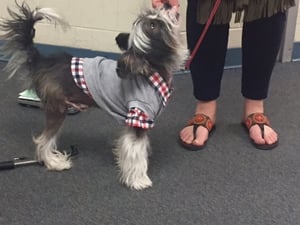 Sheri Reed; the Advanced Academic Resource teacher at Brookfield Elementary School in Chantilly, Virginia; is passionate about bringing problem-based learning into her classroom through real-world connections. When she taught our Engineering Everywhere unit Go Fish: Engineering Prosthetic Tails, she reached out to members of her local community to bring the unit to life. Her class got the opportunity to try on real prosthetic devices from a local clinic and meet “Champ the Tri-Pod,” a charming three-legged dog! Because Sheri went above and beyond for her class, she saw an amazing diversity of technologies in the final design challenge—find out more on the blog.
Sheri Reed; the Advanced Academic Resource teacher at Brookfield Elementary School in Chantilly, Virginia; is passionate about bringing problem-based learning into her classroom through real-world connections. When she taught our Engineering Everywhere unit Go Fish: Engineering Prosthetic Tails, she reached out to members of her local community to bring the unit to life. Her class got the opportunity to try on real prosthetic devices from a local clinic and meet “Champ the Tri-Pod,” a charming three-legged dog! Because Sheri went above and beyond for her class, she saw an amazing diversity of technologies in the final design challenge—find out more on the blog.
Kathryn Kilyk, Coolest Conservationist
Kathryn Kilyk; STEM Lab educator at Conover Road Primary School in Colts Neck, New Jersey; made impactful connections when she taught EiE’s agricultural engineering unit, The Best of Bugs: Designing Hand Pollinators. She used the environmental context of the unit to get her students buzzing about the plight of the bees, pesticides, and cool technologies like robo-bees! Because of the work she did to connect the unit to the local environment, her class had fun brainstorming ways to keep their area safe for pollinators of all kinds. Read more about her environmental connections on the blog.
Dr. Gina Navoa Svarovsky, Social Justice Star
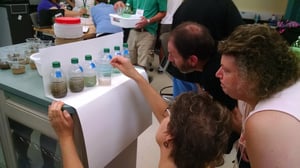 When Dr. Gina Navoa Svarovsky, faculty at the Center for STEM Education and the College of Engineering at the University of Note Dame, discovered our unit Water, Water Everywhere: Designing Water Filters, she made an immediate connection to the Flint water crisis. She envisioned middle-school students designing point-of-entry filters to attach to people’s homes in Flint, Michigan, so she reached out to the Flint study team to get real water contamination data. The result is a powerful design challenge, where students are tasked with designing and recommending the best point-of-service water filter for Flint residents’ homes. You can learn more about Gina’s impactful adaptation and find a PDF with an outline from her STEM integration PD workshop on the blog to recreate the activity in your own classroom.
When Dr. Gina Navoa Svarovsky, faculty at the Center for STEM Education and the College of Engineering at the University of Note Dame, discovered our unit Water, Water Everywhere: Designing Water Filters, she made an immediate connection to the Flint water crisis. She envisioned middle-school students designing point-of-entry filters to attach to people’s homes in Flint, Michigan, so she reached out to the Flint study team to get real water contamination data. The result is a powerful design challenge, where students are tasked with designing and recommending the best point-of-service water filter for Flint residents’ homes. You can learn more about Gina’s impactful adaptation and find a PDF with an outline from her STEM integration PD workshop on the blog to recreate the activity in your own classroom.
The EiE team is always excited to hear about how educators made engineering come alive for their students. If you have a story to share, please email us at eiecomm@mos.org, or find us on Twitter! We’d love to hear it.
